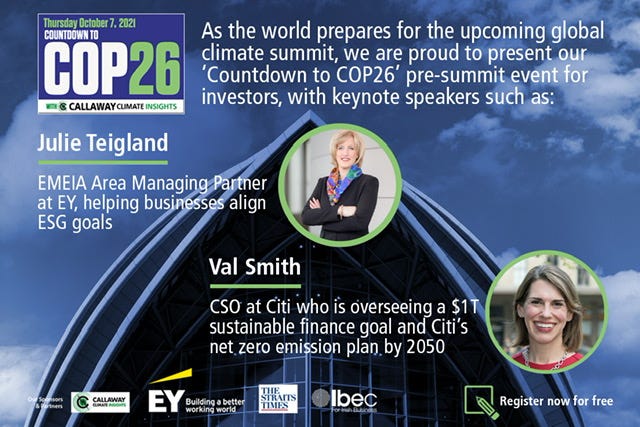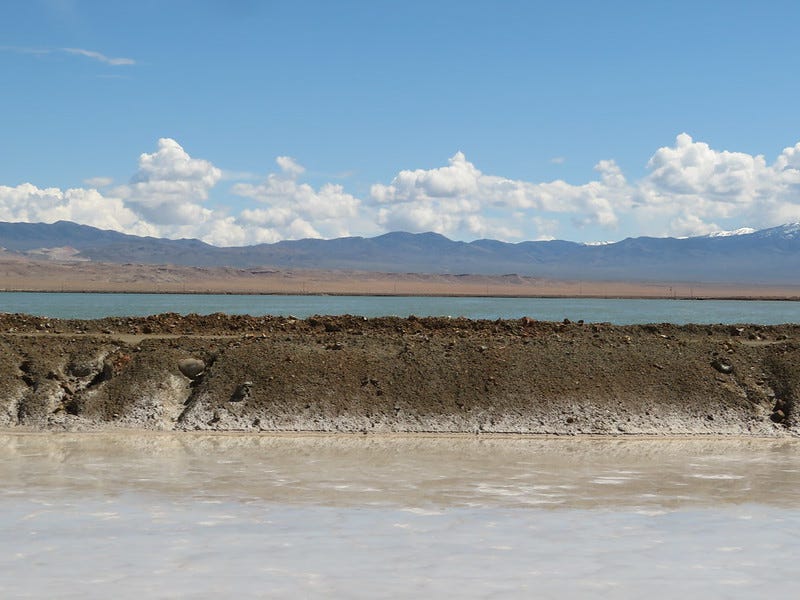What's the greatest climate threat to banks? Plus, China to attend COP26
Welcome to Callaway Climate Insights. Last chance to catch part of 'The Great Repricing' event by Gitterman Asset Mgmt. Details below.
Callaway Climate Insights publishes Tuesdays and Thursdays for everybody. To get our insights and analysis every day, please subscribe.
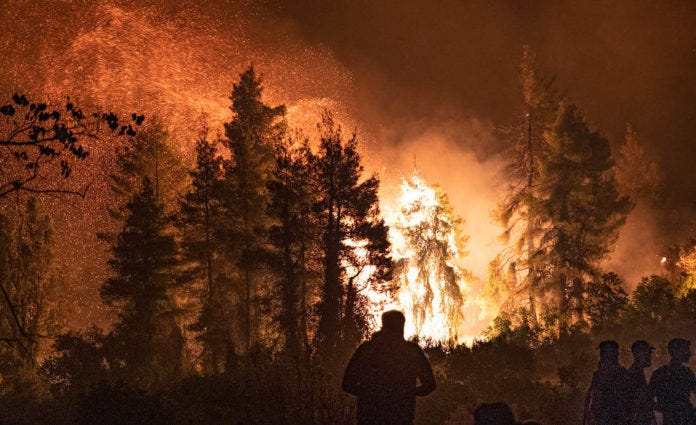
The worsening impacts of climate change have been graphically illustrated on our video screens this year; from wildfires and floods to hurricanes, extreme heat, ice storms and polar vortexes. But for those who measure risk for a living, i.e. bankers, insurers, and investors, wildfires may be the greatest systemic threat.
That is one of the fascinating conclusions of a new study out this week by the European Central Bank, which is beginning a year-long series of stress testing on banks across the continent.
It found that the physical risk from disasters such as wildfires to bank loan portfolios is the dominant threat in countries such as Spain, Portugal, and Greece, which are more focused on local lending and whose businesses are heavily exposed in dry, warm regions. Risk from rising seas and floods was still huge, but largely contained to northern European countries.
Students of European financial crises will remember that it is the Southern countries whose weak loan portfolios sparked the eurozone crisis a decade ago. So the ECB is clearly sounding an alarm about how climate change could lead to another systemic debacle in securities markets.
The good news generated from New York climate week in the past few days about countries such as China and the U.S. stepping up their efforts to cut harmful pollution has somewhat obscured the effort of central banks and financial regulators to get a handle on the true risks of global warming to the world’s economies. Expect to hear much more about this in the next five weeks leading up to COP26 in Glasgow.
More insights below. . . .
Don’t forget to contact me directly if you have suggestions or ideas at dcallaway@callawayclimateinsights.com.
ZEUS: How NY climate week changes COP26, with Parnassus ESG head Iyassu Essayas

. . . . Like a Broadway show dress rehearsal before opening night, everything was going wrong for New York Climate Week this week before China’s Xi Jinping surprised everyone for a second year running with a major climate commitment. David Callaway and Robert Powell talk with Parnassus Investments head of ESG Iyassu Essayas about whether other surprises like this could come at the vital COP26 climate summit in Glasgow in November and how investors might prepare their portfolios. . . .
Podcast with Iyassu Essayas, head of ESG Stewardship, Parnassus
. . . . In our latest podcast, Iyassu Essayas, director of ESG Stewardship at Parnassus Investments, talks with David Callaway and Bob Powell about what investors and others can expect when world leaders gather in Glasgow for COP26.
Listen to the podcast and read the full column by David Callaway, ZEUS: How NY climate week changes COP26, with Parnassus ESG head Iyassu Essayas.
China will send delegation to COP26
. . . . China will send a high-level delegation to Glasgow to the COP26 climate summit in November after all, a person familiar with the situation in Brussels told Callaway Climate Insights’ Stephen Rae. As of early this week, China had not indicated whether it was coming to the summit, which is billed as the most important international conference of the year. Chinese leader Xi Jinping, who shook NY climate week this week with a pre-recorded video statement saying China would stop building coal plants abroad, has also not confirmed whether he might come. . . .
. . . . Separately, China’s pledge to halt coal investments abroad would affect about $50 billion worth of new investment in some 47 plants in 20 countries, which sounds great until you remember China pledged just this year to build 43 more coal plants inside the country. China’s renewable ambitions are real, as proven by its investments in wind power and electric vehicles, but as long as coal is in the mix, it’s hard to look at it as a leader in the climate transition. Read more insights here. . . .
EU notebook: Former Irish PM to head new carbon neutrality forum, plus Poland defies EU on coal mine
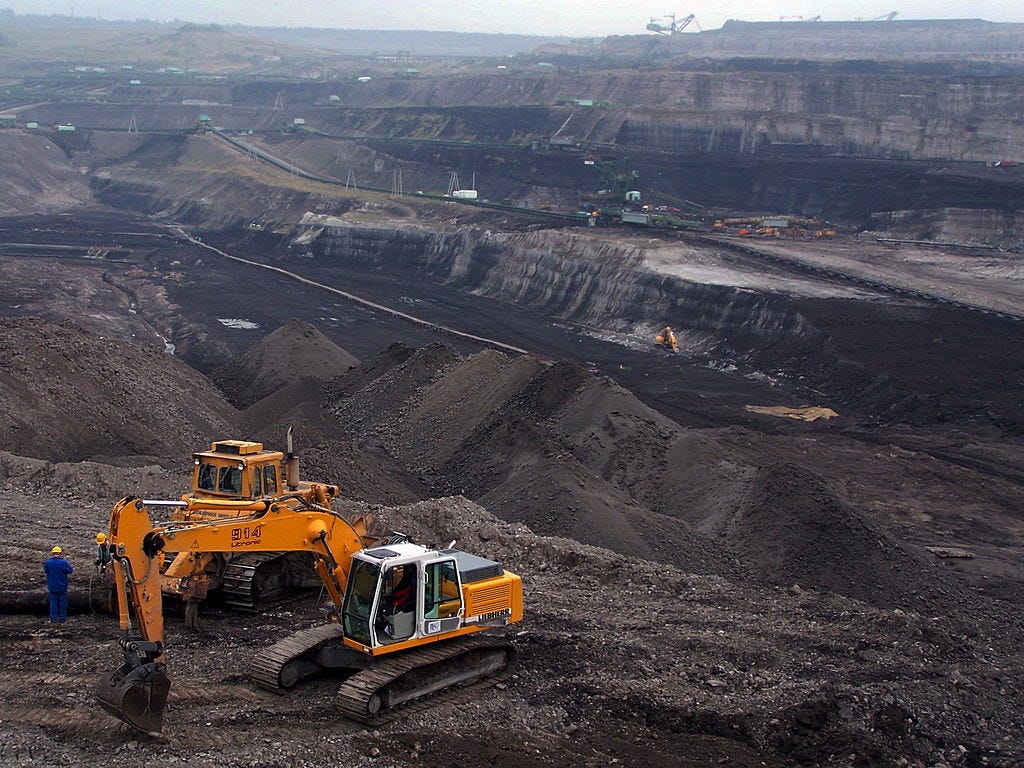
. . . . Former Irish Prime Minister Bertie Ahern was named chair of a new global forum designed to encourage leadership talk about carbon neutrality and green technologies, writes Dan Byrne from Dublin. The “World Carbon Neutrality Forum” (WCNF) intends to be like the World Economic Forum, whose annual meetings in Davos, Switzerland have made it a magnet for CEOs, investors, politicians, and media. . . .
. . . . Separately, Poland is defying an EU order to close its controversial Turów coal mine near the Czech border, even at the cost of a €500,000 ($585,000) fine per day. Poland has said it needs to keep the mine running to have enough electricity for the winter and has no intention of paying the fine. . . .
Presenting ‘Countdown to COP26,’ a Callaway Climate Insights special event for investors
. . . . Two weeks from today Callaway Climate Insights hosts a special event for investors with “Countdown to COP26: what every investor needs to know about the world’s most important climate summit.” Join David Callaway, Stephen Rae and Marsha Vande Berg with guests Val Smith, chief sustainability officer at Citibank; Julie Teigland, managing partner Europe, Middle East, Africa of EY; ESG fund managers Jeff Gitterman and Tim Dunn; and Hannon Armstrong CEO Jeff Eckel, among others. More details in coming days.
Register now for our special event on Oct. 7: Countdown to COP25
Thursday’s subscriber insights: The coming boom in raw materials commodities
. . . . Investors looking for opportunities in climate solutions such as wind power, solar, battery storage, or electric vehicles might instead look to some of the natural materials that will help make those products work, such as copper, cobalt, nickel, lithium, or rare earths. Demand for minerals has been strong and prices are even higher because of supply chain issues. But veterans of past commodity super-cycles will remember that as super long as they can be, they tend to end abruptly when interest rates rise or one big buyer sees an economic downturn. Read more here. . . .
. . . . Remember when Texas politicians blamed renewable energy for electricity shortages during the tragic winter ice storms back in February? Seems most Texas residents weren’t listening. Solar panel sales and battery storage devices are booming in the months since the storms as homeowners rush to secure their own energy coverage. Read more here. . . .
. . . . Forget Ford’s (F) coming electric pickup the F150 Lightning. The company’s announcement yesterday that it had invested $50 million in battery recycling startup Redwood Materials, which was founded by ex-Tesla (TSLA) exec J.B. Straubel, is the true game changer for the company. Read why here. . . .
. . . . Great panel Tuesday on layering multiple ESG strategies into your portfolio at the The Great Repricing virtual event tied to climate week held by Gitterman Asset Management. Panelists included Elizabeth Levy from Trillium Asset Management; Mamadou-Abou Sarr, president of V-Square Quantitative Asset Management; Lori Keith, director of research at Parnassus; and Leslie Norton, incoming director of sustainability at Morningstar. Among our favorite tips was how to separate your climate investments into categories such as physical risk, transition risk, technology opportunity, and pure-play startup. To get a 10% discount on tickets for the final two days, use the code DavidC100 when you sign up here.
Editor’s picks: Sustainable Happy Meals, road charging rolls on in Michigan
What’s in your Happy Meal?
McDonald’s (MCD) is promising to use sustainable toys made with less plastic in its Happy Meals by the end of 2025. The company says it already has cut use of virgin fossil fuel-based plastic in its toys by 30% worldwide since 2018 after starting the process in markets like France, the United Kingdom and Ireland. CNBC reports that if McDonald’s achieves the target just announced, the company will have cut 90% of the amount of virgin fossil fuel-based plastic it used in the toys in 2018. McDonald’s says some of the toys will be made with plant-derived or recycled material. Others will be 3-D cutouts instead of plastic figurines. The company also is looking into switching from plastic wrapping to plant-based and certified fiber packaging.
Charging around Michigan
Michigan could be among the first in the U.S. to build a roadway that will charge electric vehicles as they pass over them, Gov. Gretchen Whitmer announced Tuesday at the Motor Bella auto show in Pontiac, Mich. According to the Associated Press, Michigan’s Department of Transportation and the Office of Future Mobility and Electrification are partnering to make a one-mile stretch of state roadway in Wayne, Oakland or Macomb counties to allow public transportation and private vehicles to charge while traveling as a part of the Inductive Vehicle Charging Pilot, according to a news release. Indiana already has a charging-road project underway.
Latest findings: New research, studies and projects
Climate change risks to global food trade and food security
Climate change poses a huge risk to both the global trade of agricultural commodities and food security, according to new research. Phys.org says the report by the Stockholm Environment Institute, reveals for the first time in detail which countries are exposed to transboundary climate risks, or TCRs. The findings, which included analysis by the Stockholm Environment Institute at York, looked at the transboundary climate risks of agricultural trade, and identified which countries are significant sources of climate risk for global commodity markets. Six key agricultural commodities were assessed: staple commodities (such as maize, rice and wheat), highly embedded commodities (soy and sugar cane) and luxury commodities (coffee). Read more about the research report here.
More of the latest research:
Society, Politicians, Climate Change and Central Banks: An Index of Green Activism
Mitigating Climate Change: Growth-Friendly Policies to Achieve Net Zero Emissions by 2050
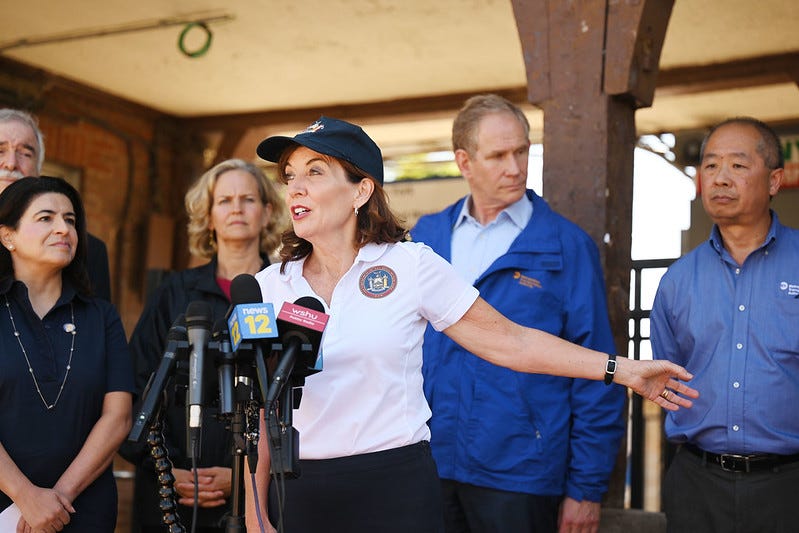
Words to live by . . . .
“New York’s communities are repeatedly facing serious consequences as a result of the devastation caused by the global climate crisis, and the stakes have never been higher as we deal with the economic and environmental destruction these extreme weather events leave behind.” — N.Y. Gov. Kathy Hochul.




